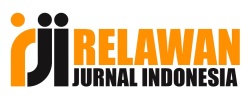Evaluating the Effectiveness of Holistic Integrative Early Childhood Education Policy Implementation in Indonesia
DOI:
https://doi.org/10.35719/gns.v6i1.186Keywords:
early childhood education, holistic integrative approach, policy implementationAbstract
This study evaluates the effectiveness of Holistic Integrative Early Childhood Education (HIECE) policy implementation in Kulon Progo Regency, Indonesia. Guided by a descriptive quantitative design, the research involved 100 Early Childhood Education (ECE) institutions formally trained in HIECE service delivery. Data were collected using a structured questionnaire based on five core service domains: educational services; nutrition, health, and care; childcare; protection; and welfare. Results indicate an overall moderate effectiveness, with welfare services scoring highest (3.25), followed by education (3.14), health and care (3.13), childcare (2.49), and protection (2.13). While most institutions demonstrated competence in educational and health-related services, significant weaknesses were found in parental engagement and welfare support, including access to civil documentation and health insurance. The findings highlight the critical role of cross-sector collaboration, community involvement, and institutional capacity in policy realization. This study contributes empirical insights to inform localized strategies for strengthening early childhood systems and advancing child well-being through integrative, inclusive, and context-sensitive approaches.
References
Arikunto, S. (2011). Prosedur Penelitian?: Suatu Pendekatan Praktik. Rineka Cipta.
Black, M. M., Trude, A. C. B., & Lutter, C. K. (2020). All Children Thrive: Integration of Nutrition and Early Childhood Development. Annual Review of Nutrition, 40, 375–406. https://doi.org/10.1146/annurev-nutr-120219-023757
Bronfenbrenner, U. (1979). The Ecology of Human Development: Experiments by Nature and Design. Harvard University Press.
Budiarti, E., & Novianti, I. (2024). PENERAPAN LAYANAN PAUD HOLISTIK INTEGRATIF DALAM UPAYA PEMENUHAN HAK ANAK USIA DINI. Atthufulah?: Jurnal Pendidikan Anak Usia Dini, 5(1), 62–69. https://doi.org/10.35316/atthufulah.v5i1.4443
Epstein, J. L., & Sheldon, S. B. (2022). School, Family, and Community Partnerships: Preparing Educators and Improving Schools (3rd ed.). Routledge. https://doi.org/10.4324/9780429400780
Fevre, D. M. Le. (2019). Complex Challenges in Policy Implementation. The New Zealand Annual Review of Education, 24, 192–202. https://doi.org/10.26686/nzaroe.v24i0.6564
Garbacz, S. A., Minch, D. R., Jordan, P., Young, K., & Weist, M. D. (2020). Moving Towards Meaningful and Significant Family Partnerships in Education. Adolescent Psychiatry, 10(2), 110–122. https://doi.org/10.2174/2210676610666200324113209
Graff, C. S., & Sherman, B. (2020). Models of School-Family Relations. Oxford University Press. https://doi.org/10.1093/acrefore/9780190264093.013.1247
Jannah, D. F., & Setiawan, R. (2022). Evaluasi Implementasi Program PAUD Holistik Integratif. Jurnal Obsesi?: Jurnal Pendidikan Anak Usia Dini, 6(6), 7163–7172. https://doi.org/10.31004/obsesi.v6i6.2970
Liana, H., Hasbi, S., Rusnaida, & Ummah, N. (2022). Implementasi Pengembangan Anak Usia Dini Holistik Integratif di Kota Balikpapan Provinsi Kalimantan Timur tahun 2022. BEduManagers Journal?: Borneo Educational Management and Research Journal, 3(2), 14–20. https://doi.org/10.30872/bedu.v3i2.1847
Ligina, B. D. A., Suarta, I. N., & Nurhasanah, N. (2022). Implementasi PAUD HI (Holistik Integratif) Pada TK di Kabupaten Lombok Barat Tahun 2022. Jurnal Ilmiah Profesi Pendidikan, 7(3), 1197–1207. https://doi.org/10.29303/jipp.v7i3.733
McWayne, C. M., Gigliana, M., & Mistry, J. (2022). A home-to-school approach for promoting culturally inclusive family–school partnership research and practice. Educational Psychologist, 57(4), 238–251. https://doi.org/10.1080/00461520.2022.2070752
Nastasi, B. K., & Naser, S. C. (2020). UN Convention on the Rights of the Child and the Sustainable Development Goals: Implications for Schools and Educators. In N. S. Rubin & R. L. Flores (Eds.), The Cambridge Handbook of Psychology and Human Rights (pp. 227–242). Cambridge University Press. https://doi.org/10.1017/9781108348607.016
Navarro, J., Doucet, F., & Tudge, J. (2020). Bioecological Systems Influences on Early Childhood Education. In D. F. Gullo & M. E. Graue (Eds.), Scientific Influences on Early Childhood Education (1st ed.). Routledge. https://doi.org/10.4324/9780429468285
Nguyen, C. (2023). Nationally standardized policy and locally interpreted implementation: how Vietnamese school leaders enact education reform. International Journal of Leadership in Education, 26(3), 397–426. https://doi.org/10.1080/13603124.2020.1722249
Nurfahma, S., Imran, K., Rohayani, F., & Qadafi, M. (2024). Implementation of the Integrative Holistic Program in Early Childhood Education. Indonesian Journal of Early Childhood Educational Research (IJECER), 3(1), 23. https://doi.org/10.31958/ijecer.v3i1.12209
Santoso, I., & Madiistriyatno, H. (2021). Metodologi Penelitian Kuantitatif. Indigo Media.
Saripudin, A., & Beni, H. (2025). Building the Future of Early Childhood: Optimizing Basic Services through the Holistic Integrative Early Childhood Development Model. Indonesian Journal of Early Childhood Educational Research (IJECER), 4(1), 142–157. https://doi.org/10.31958/ijecer.v4i1.14983
Schoolmedia, T. (2023). Baru 105 Kabupaten/Kota Miliki Gugus Tugas PAUD HI dan 36 Kab/Kot Miliki Rencana Aksi Daerah. Schoolmedia. https://schoolmedia.id/lipsus/3729/baru-105-kabupatenkota-miliki-gugus-tugas-paud-hi-dan-36-kabkot-miliki-rencana-aksi-daerah
Siagian, N., & Adriany, V. (2020). The Holistic Integrated Approach of Early Childhood Education and Development in Indonesia: Between Issues and Possibilities. Proceedings of the International Conference on Early Childhood Education and Parenting 2019 (ECEP 2019). https://doi.org/10.2991/assehr.k.200808.037
Sutarman, Nurhayati, Utami, R. D., Idarianty, & Akzam, I. (2022). Implementation of character based integrated holistic education in early childhood education. International Journal of Health Sciences, 6(S4), 5405–5419. https://doi.org/10.53730/ijhs.v6nS4.10923
Travelancya, T., & Asfahani, A. (2022). Model Pendampingan Penyelenggaraan Kelompok Bermain Holistik & Integratif: Playgroup Implementation Assistance Model Holistic and Integrative. Absorbent Mind, 2(1), 29–35. https://doi.org/10.37680/absorbent_mind.v2i01.1420
Undang-Undang RI Tentang Sistem Pendidikan Nasional, Pub. L. No. 20 (2003).
Vygotsky, L. S. (1978). Mind in Society: The Development of Higher Psychological Processes (M. Cole, V. John-Steiner, S. Scribner, & E. Souberman (eds.)). Harvard University Press.
Yang, S., & Oh, E. (2024). Analysis of Children’s Development Pathways based on Bronfenbrenner’s Ecological Systems Theory. International Journal of Education and Humanities, 16(3), 250–258. https://doi.org/10.54097/vaap3p97
Downloads
Published
How to Cite
Issue
Section
License
Copyright (c) 2025 Murtoko Murtoko, Nur Fadlilah Amalia, Gilang Bangkit Saputra

This work is licensed under a Creative Commons Attribution-ShareAlike 4.0 International License.
All articles published in GENIUS: Indonesian Journal of Early Childhood Education are licensed under a Creative Commons Attribution-ShareAlike 4.0 International License (CC BY-SA 4.0).
This license allows others to share (copy and redistribute) and adapt (remix, transform, and build upon) the material for any purpose, even commercially, as long as appropriate credit is given to the original author(s) and the source, and any derivative works are distributed under the same license as the original.












